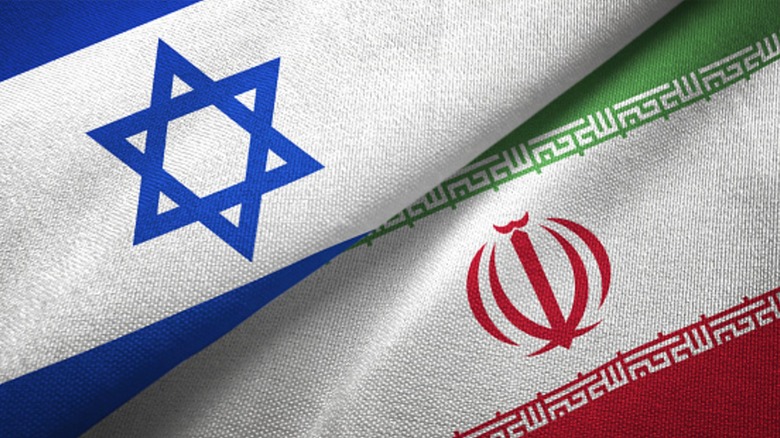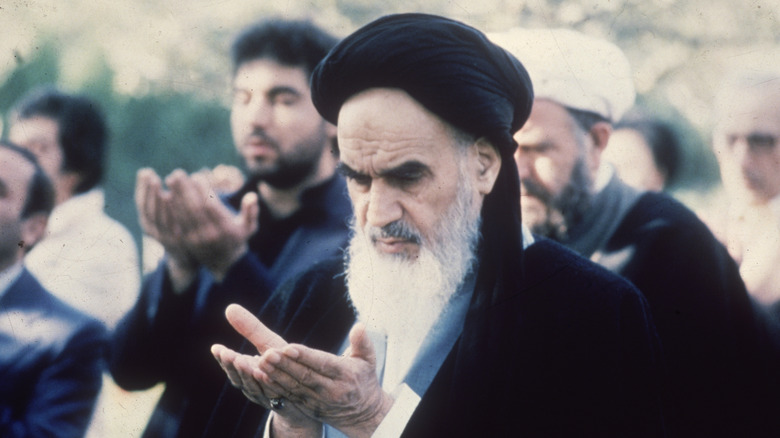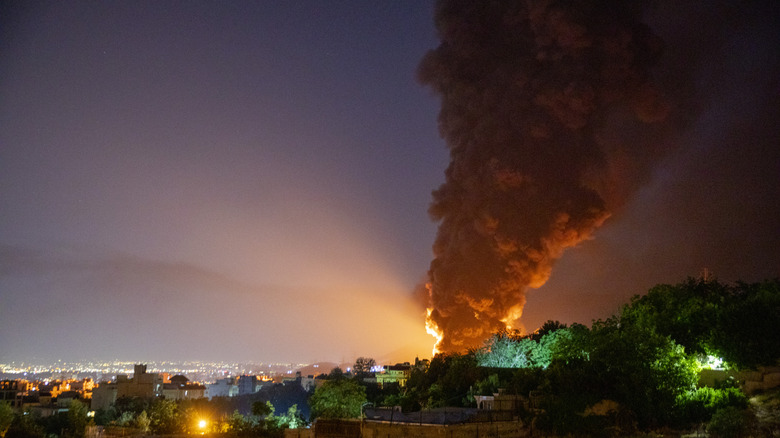Here's How Long Israel And Iran Have Really Been Fighting
On June 12 and 13, 2025, Jewish Israel, which at the time was already embroiled in a war with Hamas in Gaza, undertook a surprise attack against the neighboring country of Iran, striking several targets related to Iran's nuclear program and ballistic missile sites. The bombings killed swathes of leading military figures and nuclear scientists in Iran and led to a continued exchange of strikes in the days that followed.
Israel's bombing of Iran raised alarm across the mainstream media and heralded a new era of increased tensions in the Middle East, with experts warning of the threat of further escalation that could have the potential to explode into a global conflict. Indeed, on June 22, the United States entered the fray, supporting Israel by striking further Iranian nuclear sites with stealth bombers, leading Iran to counter by firing a barrage of 14 missiles at a U.S. military base located in Qatar. A ceasefire deal was later struck between Israel and Iran, though accusations of ceasefire violations left the Middle East teetering on the edge of continued conflict.
But despite being a surprise attack, it didn't exactly come out of nowhere. Israel and Iran have been enemies for decades, though their animosity has remained a shadow conflict for the most part.
The history of Israel-Iran relations
Israel and Iran weren't always at each other's throats. Before 1979, relations between the two powers were generally friendly, with Iran reportedly providing Israel with a much-needed oil supply during the 1960s (per Daniel Ammann's "The King of Oil: The Secret Lives of Marc Rich")
However, that was during the reign of Shah Mohammad Reza Pahlavi, who was deposed in 1979 as part of the transformative Islamic Revolution that saw Ayatollah Ruhollah Khomeini installed as the new leader of Iran. Though Khomeini and Iran refused to recognize Israel as a legitimate state, the following year they were forced in private to continue accepting them as a trading partner in the face of an attempted invasion by Iraq that would destabilize the region for eight bloody years.
Nevertheless, after the end of the Iraq-Iran war, religious zealotry became more evident in foreign affairs. Khomeini considered Israel to be "Little Satan," alongside the "Big Satan" of the United States and increased his rhetoric against Israel throughout the 1980s.
The prelude to the 2025 Israel-U.S. strikes on Iran
Tensions between Israel and Iran rose in August 2002, when the West revealed Iran had been secretly operating a nuclear enrichment facility, increasing fears that the state could develop nuclear weapons to the detriment of neighboring powers, including Israel. In the years that followed, espionage and diplomacy were both employed to try to reduce the prospect of Iran emerging as a 21st-century nuclear power.
Iran signed a nuclear agreement in 2015, which stated it would limit its nuclear ambitions in exchange for the end of economic sanctions imposed on it by several world powers. However, after Israeli Prime Minister Benjamin Netanyahu announced in 2018 that Iran had covered up its former nuclear plans, citing data that Israel had received, leading the U.S. to withdraw from the deal. 2020 saw several attacks against Iran's nuclear facilities, allegedly undertaken by Israel, including the killing of an Iranian nuclear scientist with a remote-controlled machine gun. In the following years, Iran was targeted with cyberattacks, assassinations, and sabotage after its uranium enrichment program reached never-before-met levels of purity, approaching the grade required to produce nuclear weapons. Airstrikes between the two states also took place in 2024.


